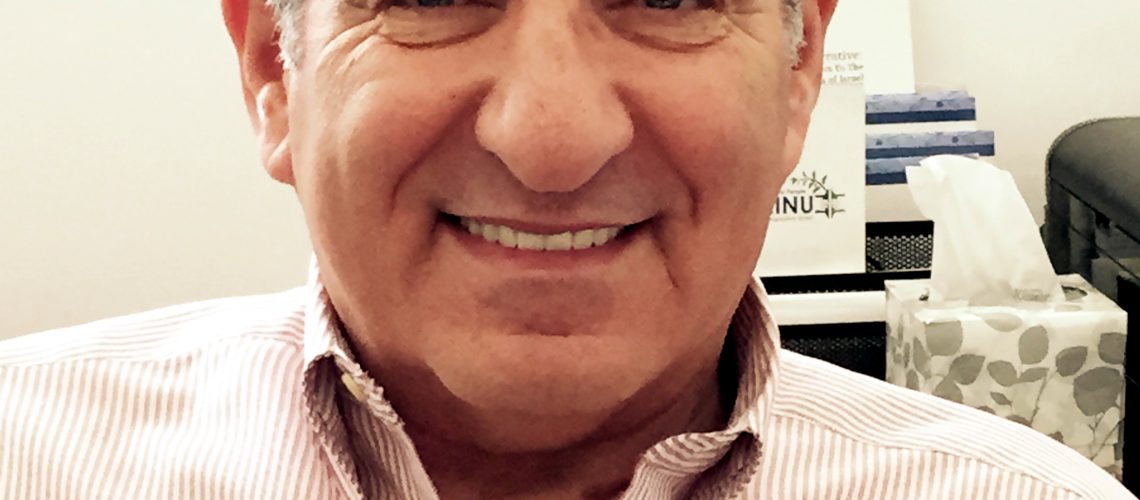Jerusalem, whose very name is “city of peace”, is again at war. And the violence has spread to parts of Israel that have been unscarred until now. A violence in which there are Palestinians overcome with anger and frustration who start their day in the kitchen looking not for coffee but for a knife. They venture out looking for a Jew to stab, to kill. Reacting to this Wave of Terror, the Israeli response is to shoot first and ask questions later. Tension is again a part of daily life.
The First Intifada which plagued Israel from 1987 until the Oslo Accords in 1993 was an uprising of stones. The Second Intifada erupted in 2000 and served up attack after attack of suicide bombers and bus explosions. 1,000 Israelis and 3,000 Palestinians died over 5 years, until the Sharm el-Sheikh Summit between Abbas and Sharon restored calm. The present violence is one of knives and of murder by vehicular homicide. At the time of this writing there have been 25 Israelis and 100 Palestinians killed, a much smaller count than in the past, because unlike the previous two uprisings, this time the violence is not organized. The lack of a “central command” where the attackers are lone-wolf attackers has prevented an escalation of atrocities while creating a formidable level of anxiety among Israelis. This time there are no sirens to warn of an impending attack. This time there is no feeling that Israeli intelligence forces will strike at the root of the terror and the branches will die. This time there is no root, a knife flashes, blood flows and simply “managing the conflict” is failing as a solution. There are those who claim that this is not a Third Intifada but that in fact what we are seeing is what a One-State Solution would look like.
On Thursday, November 19, Ezra Schwartz was killed in a terror attack. He was a gap-year student from Sharon, Massachusetts, studying at Yeshiva Ashreinu in Beit Shemesh, part of a program supported by the Jewish Agency. Ezra was with classmates delivering food packages to soldiers when a Palestinian armed with an Uzi submachine gun opened fire on a group of cars. Two other victims of the shooting died, Yaacov Don, an Israeli resident of Alon Shvut, and Shadi Arafa, a Palestinian from Hebron. The killer was apprehended.
That day, US Ambassador to Israel, Dan Shapiro, condemned Ezra’s murder in a statement issued shortly after news of his death, as did Natan Sharansky, head of the Jewish Agency. The US State Department followed with a statement on Friday. President Obama himself called Ezra’s parents and offered his profound condolences. Ezra was neither the first or last victim. As Jews and Americans, we might feel his death more poignantly but all the victims of these cowardly attacks deserve our sympathy and compassion. What they had most in common was their vulnerability. There is no cause which can justify the murder of innocents and no good end can be promoted by such deeds.
Ezra’s death, and the deaths of the others, come in the wake of the ISIS attacks in Paris. Meant to terrorize, the Paris assault has united people globally in their revulsion and strengthening the determination of nations to combat ISIS and its ideology of pseudo-religious fascism and thuggery. The attacks in the West Bank and Israel have some apparent similarities to the ISIS assault, but they are not the same. They are not centrally organized. They represent a broad based despair specifically at the Occupation and a deepening repression. They are not fighting to create the next Islamic Caliphate. It is important for that difference to be acknowledged and understood, just as it is important to say that these random attacks cannot be justified by any cause. In some cases, motivation for the attacks may have included a vicious ethnic or religious hatred which must be condemned. Indeed it is precisely in these times that we need to strengthen our commitment to religious tolerance and the struggle against ethnic hatred.
Among those killed in the sweep of violence in Israel was an Eritrean immigrant. He was a victim in the aftermath of an attack that left Israeli soldier, Omri Levy, dead and about a dozen others wounded. A panicked security guard shot Haftom Zarhum, thinking, based on Zarhum’s appearance, that he was an accomplice. As Haftom lay wounded, he was assaulted by by-standers who shouted “Death to Arabs”. Haftom’s beating was captured in a recording and he died later of, what doctors said, was a combination of injuries.
We must be especially careful not to become the mirror image of the things we condemn in others.
V’ahavta l’reiacha kamocha is not a sufficient strategy for security, but in its broadest application, it must be the foundation of all of our efforts for without it, peace and security remain unattainable. Knives will not bring Palestinians a state. Calm and safety will not grace Israelis without compromise and the recognition that the Palestinian dream of a state of their own is only the other side of the coin minted by our commitment to Zionism and Jewish self-determination.

